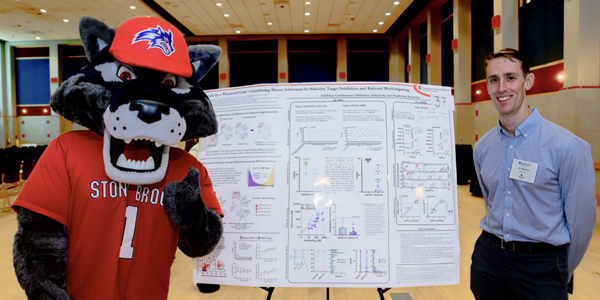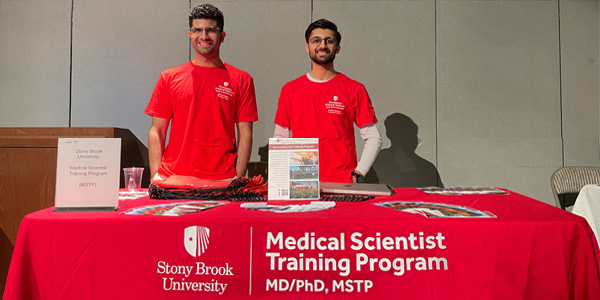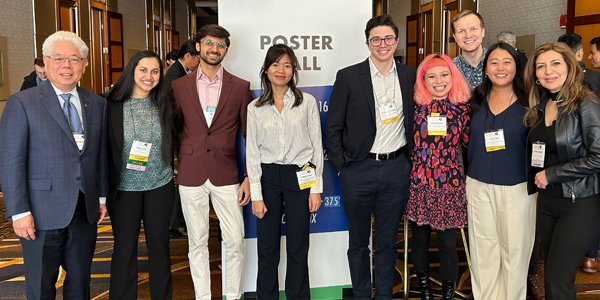The Medical Scientist Training Program (MSTP) at the Renaissance School of Medicine (RSOM) at Stony Brook University (SBU) is dedicated to developing the next generation of physician-scientists and healthcare leaders. Through rigorous training in both biomedical research and clinical medicine, students are empowered to advance scientific discovery and translate knowledge into innovations that improve human health. Since its founding in 1981, the MSTP has served as the institutional hub for physician-scientist training at the medical student level. With continuous NIH funding for 29 years, supplemented by generous support from RSOM, the program offers a robust environment for both academic and professional growth. Each year, the MSTP enrolls approximately 8 new students, maintaining a dynamic and collaborative community of around 75 trainees. With strong mentorship, comprehensive training, and a commitment to individual success, the program prepares students to become impactful leaders at the intersection of medicine and science.

Graduate Programs
There are a variety of graduate programs that the MSTP has students enrolled in. These programs span disciplines such as biomedical sciences, life sciences, physical sciences, mathematical sciences, or engineering, reflecting the diverse research interests of MSTP trainees.

For Current Students
Welcome to the Medical Science Training Program — empowering current students with the resources, support, and community to thrive in their scientific journey.

Student Highlights
The Student Highlights section showcases the outstanding achievements, research endeavors, and unique journeys of our Medical Scientist Training Program (MSTP) trainees, reflecting their dedication to advancing both science and medicine.
Share with us why you chose SBU!
“ I chose Stony Brook because of its strong research culture, especially its integration of technology into biomedical science. As a major tertiary care center, SBU offers access to a large, diverse patient population, which translates into an invaluable volume of real-world clinical data. For someone passionate about data-driven discovery, that’s an incredible asset. The environment here is perfect for bridging clinical insight with computational innovation.”
“I chose SBU because the friendly welcome I received from both professors and students during my interview made me feel sure I would fit into the tight-knit community of scientists- and physicians-in-training here.”
“I chose Stony Brook because of the exciting collaboration with places like Cold Spring Harbor and Brookhaven National Labs, and the cutting-edge work in Biomedical Informatics using AI to connect clinical and molecular data. I also love the balance of living in a quieter community while still being just a train ride from NYC.”